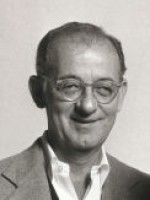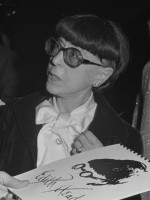Billy Wilder is a Actor, Director, Scriptwriter, Producer, Editor and Additional Writing American born on 22 june 1906 at Sucha Beskidzka (Pologne)
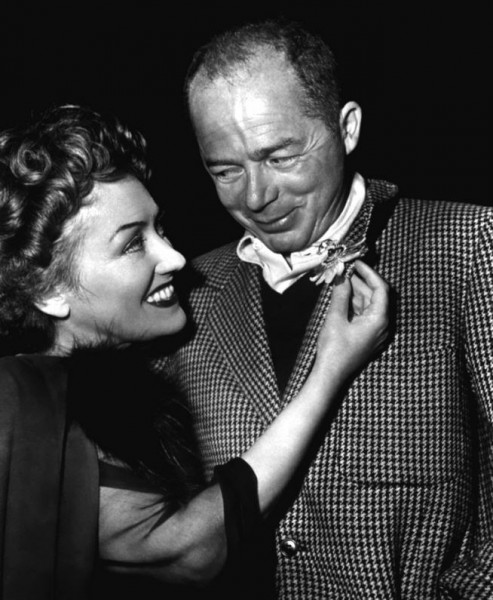
Billy Wilder (22 June 1906 – 27 March 2002) was an Austrian-born American filmmaker, screenwriter, producer, artist, and journalist, whose career spanned more than 50 years and 60 films. He is regarded as one of the most brilliant and versatile filmmakers of Hollywood's golden age. Wilder is one of only five people to have won Academy Awards as producer, director, and writer for the same film (The Apartment).
Wilder became a screenwriter in the late 1920s while living in Berlin. After the rise of the Nazi Party, Wilder, who was Jewish, left for Paris, where he made his directorial debut. He relocated to Hollywood in 1933, and in 1939 he had a hit when he co-wrote the screenplay for the screwball comedy Ninotchka. Wilder established his directorial reputation with Double Indemnity (1944), a film noir he co-wrote with mystery novelist Raymond Chandler. Wilder earned the Best Director and Best Screenplay Academy Awards for the adaptation of a Charles R. Jackson story The Lost Weekend (1945), about alcoholism. In 1950, Wilder co-wrote and directed the critically acclaimed Sunset Boulevard.
From the mid-1950s on, Wilder made mostly comedies. Among the classics Wilder created in this period are the farces The Seven Year Itch (1955) and Some Like It Hot (1959), satires such as The Apartment (1960), and the drama comedy Sabrina (1954). He directed fourteen different actors in Oscar-nominated performances. Wilder was recognized with the American Film Institute (AFI) Life Achievement Award in 1986. In 1988, Wilder was awarded the Irving G. Thalberg Memorial Award. In 1993, he was awarded the National Medal of Arts.
Issu d'une famille juive autrichienne, Samuel Wilder, du prénom de son grand-père maternel, naît dans une petite ville de l'empire austro-hongrois qui appartient aujourd'hui à la Pologne. Il est tout jeune lorsque la famille s'installe à Vienne, où lui et son frère Wilhelm font leurs études primaires et secondaires. Son père rêve de le voir devenir avocat ou médecin mais il quitte rapidement l'université et opte pour une carrière de journaliste. Sa mère a fait un séjour aux États-Unis et était fascinée par Billy the Kid ou les Buffalo Bill Wild West Shows, ce qui explique le surnom familial de Billy qu'il adopte ensuite à la place de son prénom officiel, Samuel.
Débuts professionnels
Il travaille pour un journal viennois, où il est chargé d'articles sur le sport, de faits-divers, et commence également à rédiger des critiques sur les spectacles, notamment le cinéma. En 1926, il s'établit à Berlin où il survit un temps en jouant le gigolo ou le danseur mondain à l'hôtel Eden, tout en commençant à écrire des récits et des ébauches d'histoires. Il collabore à un journal allemand local, Berliner Zeitung am Mittag, puis un tabloïd pour lesquels il rédige des articles mais aussi des nouvelles et des romans-feuilleton à succès, généralement policiers ou burlesques. Ses enquêtes le mettent en contact avec des milieux et des personnes variés et l'amènent à se familiariser avec une diversité de décors et de personnages que l'on retrouve plus tard dans ses films.
C'est l'époque du cinéma muet. Il travaille, souvent comme nègre pour des scénaristes à succès et collabore avec d'autres professionnels du cinéma, notamment Fred Zinnemann, alors opérateur, et Robert Siodmak. Le succès d'une de ces œuvres, Les Hommes le dimanche (1930) lui vaut de signer un contrat avec l'Universum Film AG en 1929. Il gagne bien sa vie et commence à collectionner des œuvres d'art contemporain, notamment des meubles signés Mies van der Rohe.
Exil
Son frère, Wilhelm, s'installe aux États-Unis dans le courant des années 1920. L'arrivée d'Adolf Hitler au pouvoir le contraint à son tour à l'exil. Il séjourne d'abord à Paris, à l'hôtel Ansonia, rue de Saïgon (où vécurent de nombreux exilés allemands et autrichiens), où il vit chichement et fréquente un milieu d'expatriés allemands qui compte Franz Waxman, Friedrich Hollaender ou Peter Lorre. Il réalise un film avec une jeune débutante, Danielle Darrieux, et Pierre Mingand : Mauvaise Graine. Joe May, un metteur en scène allemand, emporte un de ses scénarios à Hollywood et réussit à le placer en studio. Il contacte alors Wilder et lui demande de le rejoindre. Celui-ci obtient un visa de tourisme et s'embarque pour les États-Unis où la perspective d'une guerre le persuade de s'établir.
Carrière hollywoodienne
Il sait à peine parler l'anglais et part. Néanmoins, il assimile la langue rapidement. Il écrit beaucoup de nouvelles qu'il fait traduire de l'allemand et réussit à en vendre aux studios de cinéma. Grâce à cette activité et ses contacts (dont Peter Lorre avec qui il partage un temps un appartement), il réussit à percer à Hollywood et signe un contrat avec la Paramount Pictures. Il travaille cinq jours et demi par semaine, rédige des scénarios originaux ou retravaille les textes d'autres scénaristes.
En 1938, il entame avec Charles Brackett un partenariat prolifique qui débouche sur plusieurs classiques de la comédie américaine, dont La Huitième Femme de Barbe-Bleue (1938) et Ninotchka (1939) d'Ernst Lubitsch, autre immigré allemand qu'il considère toute sa vie comme son « seul Dieu ». Lorsque la Paramount fait appel à Gary Cooper pour donner la réplique à Ingrid Bergman dans Pour qui sonne le glas, Wilder et Brackett servent de monnaie d'échange et se retrouvent au service du producteur Samuel Goldwyn. Ils écrivent alors le scénario de Boule de feu (1941) et son remake Si bémol et Fa dièse de Howard Hawks. Wilder retourne ensuite travailler au sein de la Paramount. Il rêve de passer à la mise en scène mais la répartition du travail dans l'industrie du cinéma américain et le poids des syndicats professionnels empêchent les scénaristes de réaliser leurs propres scripts. Wilder se retrouve alors dans une situation similaire à celle de Preston Sturges et Joseph L. Mankiewicz.
Après une âpre négociation avec la Paramount et le producteur Arthur Hornblow Jr., il est autorisé à mettre en scène Uniformes et jupons courts (1942), suivi des Cinq Secrets du désert (1943). Avec la double casquette de réalisateur et de scénariste qu'il garde désormais de manière définitive, il signe un troisième long métrage coécrit avec Raymond Chandler : Assurance sur la mort (1944), adapté de James M. Cain, qui est sa première grande réussite et un modèle de film noir.
À partir de 1942, Charles Brackett produit plusieurs de ses films : Les Cinq Secrets du désert, Le Poison (1945), récompensé par quatre Oscars dont ceux du meilleur film, du meilleur réalisateur et du meilleur scénario adapté, qui traite de l'alcoolisme et Boulevard du crépuscule (1950) Oscar du meilleur scénario original avec Gloria Swanson star du cinéma muet. Ce film scelle la fin de la collaboration de Wilder avec Brackett. Dès lors, Wilder devient producteur de la plupart de ses œuvres.
Le cinéma de Billy Wilder devient plus caustique et cynique : il tourne notamment Le Gouffre aux chimères (1951), son film préféré.
En 1957, il entame une collaboration prolifique avec le scénariste I.A.L. Diamond et leur entente est telle que les deux hommes travaillent ensemble sur une dizaine de films et livrent au passage quelques classiques parmi lesquels Certains l'aiment chaud (1959) et La Garçonnière (1960), couronné par cinq Oscars dont ceux du meilleur film, du meilleur réalisateur et meilleur scénario original.
Il dirige également Marilyn Monroe dans Sept Ans de réflexion (1955) et dans Certains l'aiment chaud où elle a pour partenaires Jack Lemmon (qu'il fera jouer dans sept films en 12 ans) et Tony Curtis. Billy Wilder tourne ses derniers films en Europe, comme Alfred Hitchcock, et prend sa retraite en 1981.
Mort
Billy Wilder est mort d'une pneumonie le 27 mars 2002 à Beverly Hills en Californie aux États-Unis.
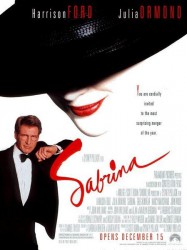 (1995)
(1995)
(Original Film Writer)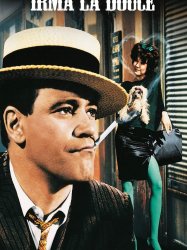 (1963)
(1963)
(Director) (1960)
(1960)
(Director) (1959)
(1959)
(Director) (1945)
(1945)
(Director)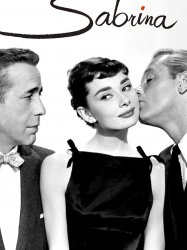 (1954)
(1954)
(Director)
Source : Wikidata
Billy Wilder

- Infos
- Photos
- Best films
- Family
- Characters
- Awards
Birth name Samuel Wilder
Nationality USA
Birth 22 june 1906 at Sucha Beskidzka (Pologne)
Death 27 march 2002 (at 95 years) at Beverly Hills (USA)
Awards National Medal of Arts, Academy Award for Best Director
Nationality USA
Birth 22 june 1906 at Sucha Beskidzka (Pologne)
Death 27 march 2002 (at 95 years) at Beverly Hills (USA)
Awards National Medal of Arts, Academy Award for Best Director
Billy Wilder (22 June 1906 – 27 March 2002) was an Austrian-born American filmmaker, screenwriter, producer, artist, and journalist, whose career spanned more than 50 years and 60 films. He is regarded as one of the most brilliant and versatile filmmakers of Hollywood's golden age. Wilder is one of only five people to have won Academy Awards as producer, director, and writer for the same film (The Apartment).
Wilder became a screenwriter in the late 1920s while living in Berlin. After the rise of the Nazi Party, Wilder, who was Jewish, left for Paris, where he made his directorial debut. He relocated to Hollywood in 1933, and in 1939 he had a hit when he co-wrote the screenplay for the screwball comedy Ninotchka. Wilder established his directorial reputation with Double Indemnity (1944), a film noir he co-wrote with mystery novelist Raymond Chandler. Wilder earned the Best Director and Best Screenplay Academy Awards for the adaptation of a Charles R. Jackson story The Lost Weekend (1945), about alcoholism. In 1950, Wilder co-wrote and directed the critically acclaimed Sunset Boulevard.
From the mid-1950s on, Wilder made mostly comedies. Among the classics Wilder created in this period are the farces The Seven Year Itch (1955) and Some Like It Hot (1959), satires such as The Apartment (1960), and the drama comedy Sabrina (1954). He directed fourteen different actors in Oscar-nominated performances. Wilder was recognized with the American Film Institute (AFI) Life Achievement Award in 1986. In 1988, Wilder was awarded the Irving G. Thalberg Memorial Award. In 1993, he was awarded the National Medal of Arts.
Biography
Premières annéesIssu d'une famille juive autrichienne, Samuel Wilder, du prénom de son grand-père maternel, naît dans une petite ville de l'empire austro-hongrois qui appartient aujourd'hui à la Pologne. Il est tout jeune lorsque la famille s'installe à Vienne, où lui et son frère Wilhelm font leurs études primaires et secondaires. Son père rêve de le voir devenir avocat ou médecin mais il quitte rapidement l'université et opte pour une carrière de journaliste. Sa mère a fait un séjour aux États-Unis et était fascinée par Billy the Kid ou les Buffalo Bill Wild West Shows, ce qui explique le surnom familial de Billy qu'il adopte ensuite à la place de son prénom officiel, Samuel.
Débuts professionnels
Il travaille pour un journal viennois, où il est chargé d'articles sur le sport, de faits-divers, et commence également à rédiger des critiques sur les spectacles, notamment le cinéma. En 1926, il s'établit à Berlin où il survit un temps en jouant le gigolo ou le danseur mondain à l'hôtel Eden, tout en commençant à écrire des récits et des ébauches d'histoires. Il collabore à un journal allemand local, Berliner Zeitung am Mittag, puis un tabloïd pour lesquels il rédige des articles mais aussi des nouvelles et des romans-feuilleton à succès, généralement policiers ou burlesques. Ses enquêtes le mettent en contact avec des milieux et des personnes variés et l'amènent à se familiariser avec une diversité de décors et de personnages que l'on retrouve plus tard dans ses films.
C'est l'époque du cinéma muet. Il travaille, souvent comme nègre pour des scénaristes à succès et collabore avec d'autres professionnels du cinéma, notamment Fred Zinnemann, alors opérateur, et Robert Siodmak. Le succès d'une de ces œuvres, Les Hommes le dimanche (1930) lui vaut de signer un contrat avec l'Universum Film AG en 1929. Il gagne bien sa vie et commence à collectionner des œuvres d'art contemporain, notamment des meubles signés Mies van der Rohe.
Exil
Son frère, Wilhelm, s'installe aux États-Unis dans le courant des années 1920. L'arrivée d'Adolf Hitler au pouvoir le contraint à son tour à l'exil. Il séjourne d'abord à Paris, à l'hôtel Ansonia, rue de Saïgon (où vécurent de nombreux exilés allemands et autrichiens), où il vit chichement et fréquente un milieu d'expatriés allemands qui compte Franz Waxman, Friedrich Hollaender ou Peter Lorre. Il réalise un film avec une jeune débutante, Danielle Darrieux, et Pierre Mingand : Mauvaise Graine. Joe May, un metteur en scène allemand, emporte un de ses scénarios à Hollywood et réussit à le placer en studio. Il contacte alors Wilder et lui demande de le rejoindre. Celui-ci obtient un visa de tourisme et s'embarque pour les États-Unis où la perspective d'une guerre le persuade de s'établir.
Carrière hollywoodienne
Il sait à peine parler l'anglais et part. Néanmoins, il assimile la langue rapidement. Il écrit beaucoup de nouvelles qu'il fait traduire de l'allemand et réussit à en vendre aux studios de cinéma. Grâce à cette activité et ses contacts (dont Peter Lorre avec qui il partage un temps un appartement), il réussit à percer à Hollywood et signe un contrat avec la Paramount Pictures. Il travaille cinq jours et demi par semaine, rédige des scénarios originaux ou retravaille les textes d'autres scénaristes.
En 1938, il entame avec Charles Brackett un partenariat prolifique qui débouche sur plusieurs classiques de la comédie américaine, dont La Huitième Femme de Barbe-Bleue (1938) et Ninotchka (1939) d'Ernst Lubitsch, autre immigré allemand qu'il considère toute sa vie comme son « seul Dieu ». Lorsque la Paramount fait appel à Gary Cooper pour donner la réplique à Ingrid Bergman dans Pour qui sonne le glas, Wilder et Brackett servent de monnaie d'échange et se retrouvent au service du producteur Samuel Goldwyn. Ils écrivent alors le scénario de Boule de feu (1941) et son remake Si bémol et Fa dièse de Howard Hawks. Wilder retourne ensuite travailler au sein de la Paramount. Il rêve de passer à la mise en scène mais la répartition du travail dans l'industrie du cinéma américain et le poids des syndicats professionnels empêchent les scénaristes de réaliser leurs propres scripts. Wilder se retrouve alors dans une situation similaire à celle de Preston Sturges et Joseph L. Mankiewicz.
Après une âpre négociation avec la Paramount et le producteur Arthur Hornblow Jr., il est autorisé à mettre en scène Uniformes et jupons courts (1942), suivi des Cinq Secrets du désert (1943). Avec la double casquette de réalisateur et de scénariste qu'il garde désormais de manière définitive, il signe un troisième long métrage coécrit avec Raymond Chandler : Assurance sur la mort (1944), adapté de James M. Cain, qui est sa première grande réussite et un modèle de film noir.
À partir de 1942, Charles Brackett produit plusieurs de ses films : Les Cinq Secrets du désert, Le Poison (1945), récompensé par quatre Oscars dont ceux du meilleur film, du meilleur réalisateur et du meilleur scénario adapté, qui traite de l'alcoolisme et Boulevard du crépuscule (1950) Oscar du meilleur scénario original avec Gloria Swanson star du cinéma muet. Ce film scelle la fin de la collaboration de Wilder avec Brackett. Dès lors, Wilder devient producteur de la plupart de ses œuvres.
Le cinéma de Billy Wilder devient plus caustique et cynique : il tourne notamment Le Gouffre aux chimères (1951), son film préféré.
En 1957, il entame une collaboration prolifique avec le scénariste I.A.L. Diamond et leur entente est telle que les deux hommes travaillent ensemble sur une dizaine de films et livrent au passage quelques classiques parmi lesquels Certains l'aiment chaud (1959) et La Garçonnière (1960), couronné par cinq Oscars dont ceux du meilleur film, du meilleur réalisateur et meilleur scénario original.
Il dirige également Marilyn Monroe dans Sept Ans de réflexion (1955) et dans Certains l'aiment chaud où elle a pour partenaires Jack Lemmon (qu'il fera jouer dans sept films en 12 ans) et Tony Curtis. Billy Wilder tourne ses derniers films en Europe, comme Alfred Hitchcock, et prend sa retraite en 1981.
Mort
Billy Wilder est mort d'une pneumonie le 27 mars 2002 à Beverly Hills en Californie aux États-Unis.
Best films
 (1995)
(1995)(Original Film Writer)
 (1963)
(1963)(Director)
 (1960)
(1960)(Director)
 (1959)
(1959)(Director)
 (1945)
(1945)(Director)
 (1954)
(1954)(Director)
Usually with
Filmography of Billy Wilder (73 films)
Actor
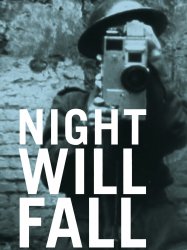
Night Will Fall (2014)
, 1h15Genres Documentary
Themes Films about racism, Films about religion, Documentary films about racism, Documentary films about law, Documentary films about war, Documentary films about historical events, Documentary films about religion, Political films, Films about Jews and Judaism, Documentary films about World War II
Actors Alfred Hitchcock, Jasper Britton, Billy Wilder, Helena Bonham Carter
Roles Self (archive footage)
Rating79%





The film intersperses documentary film from German Concentration Camps Factual Survey, the 1945 documentary, with recent interviews with survivors and liberators. The producers, editors and cameramen who produced the 1945 documentary are featured, and its long delay is explored.
 , 1h20
, 1h20Origin USA
Genres Documentary
Themes Films about films, Documentary films about the film industry, Documentary films about historical events
Actors Sigourney Weaver, Marlene Dietrich, Hedy Lamarr, Elsa Lanchester, Peter Lorre, Billy Wilder
Roles Self (archive footage)
Rating77%





Ce documentaire, mêlant document d'archives, extraits de films et interviews, retrace le parcours de personnalités du cinéma allemand qui à l'arrivée d'Adolf Hitler au pouvoir en 1933, choisissent, plus ou moins forcés, de s'exiler à Hollywood. On découvre comment des hommes et des femmes du cinéma germanophone (Fritz Lang, Ernst Lubitsch, Peter Lorre, Marlène Dietrich, Billy Wilder entre autres) ont dû s'adapter au système hollywoodien et se faire une place dans le cinéma américain. Ils ont grandement contribué à la création du film noir et ont apporté du sang neuf au genre de la comédie.
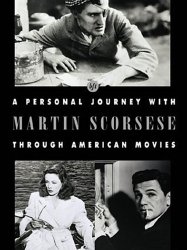 , 3h45
, 3h45Directed by Martin Scorsese
Origin USA
Genres Documentary
Themes Films about films, Documentary films about business, Documentary films about the film industry, Documentaire sur une personnalité
Actors Martin Scorsese, Kathryn Bigelow, Frank Capra, John Cassavetes, Francis Ford Coppola, Brian De Palma
Roles Self
Rating85%





Martin Scorsese, célèbre réalisateur américain, énumère les films américains qui l'ont marqué et qui ont influencé son œuvre. Son voyage à travers le cinéma commence au début du siècle pour se terminer en 1969, date de son premier film : Who's That Knocking at My Door.
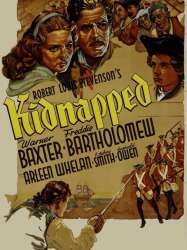
Kidnapped (1938)
, 1h30Directed by Otto Preminger, Alfred L. Werker
Origin USA
Genres Drama, Adventure
Actors Warner Baxter, Freddie Bartholomew, Nigel Bruce, Arleen Whelan, C. Aubrey Smith, Reginald Owen
Rating65%





In the late eighteenth century David Balfour's evil uncle arranges for him to be kidnapped and sent to sea where he meets exiled Alan Breck. The two make their way back to Scotland and justice.

Le Reporteur diabolique (1929)
Directed by Ernst Laemmle
Origin German
Genres Thriller
Actors Eddie Polo, Maria Forescu, Billy Wilder
Rating67%





Director
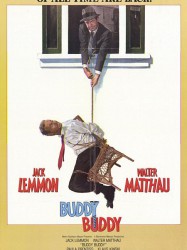
Buddy Buddy (1981)
, 1h32Directed by Billy Wilder
Origin USA
Genres Comedy, Crime
Themes Time travel films, Films based on plays, Buddy films
Actors Jack Lemmon, Walter Matthau, Paula Prentiss, Klaus Kinski, Dana Elcar, Joan Shawlee
Rating64%





Hitman Trabucco has been hired to eliminate Rudy "Disco" Gambola before he testifies against fellow members of the Mob, but completing the contract becomes problematic once he encounters suicidal Victor Clooney, an emotionally disturbed television censor staying in the room adjacent to his in the Ramona Hotel in Riverside, California.
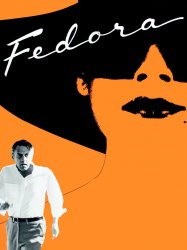
Fedora (1978)
, 1h54Directed by Billy Wilder
Origin France
Genres Drama, Romance
Actors William Holden, Marthe Keller, Hildegard Knef, José Ferrer, Frances Sternhagen, Mario Adorf
Rating67%





The film's central character is a reclusive foreign-born actress, one of the greatest movie stars of the century, who inexplicably has retained her youthful beauty despite her advancing years. In the opening scene she commits suicide by throwing herself in front of a train, and among the mourners at her funeral is aging has-been Hollywood producer Barry "Dutch" Detweiler, with whom she once had a brief affair and who serves as the film's narrator.

The Front Page (1974)
, 1h45Directed by Billy Wilder, Carey Loftin, Howard Kazanjian
Origin USA
Genres Drama, Comedy, Comedy-drama, Romantic comedy, Romance
Themes Films about writers, Films about journalists, Films about sexuality, Théâtre, Erotic films, Films about prostitution, Films about capital punishment, Films based on plays, Erotic thriller films
Actors Jack Lemmon, Walter Matthau, Charles Durning, David Wayne, Susan Sarandon, Vincent Gardenia
Rating72%





Chicago Examiner reporter Hildebrand "Hildy" Johnson (Jack Lemmon) has just quit his job in order to marry Peggy Grant (Susan Sarandon) and start a new career, when convict Earl Williams (Austin Pendleton) escapes from death row just prior to his execution. Earl is an impoverished, bumbling leftist whose only offense is stuffing fortune cookies with messages demanding the release of Sacco and Vanzetti, but the yellow press of Chicago has painted him as a dangerous threat from Moscow. As a result the citizenry are anxious to see him put to death.

Avanti! (1972)
, 2h20Directed by Billy Wilder
Origin USA
Genres Drama, Comedy, Romantic comedy, Romance
Themes Théâtre, Films based on plays
Actors Jack Lemmon, Juliet Mills, Clive Revill, Edward Andrews, Gianfranco Barra, Janet Ågren
Rating71%





For the past ten years, Baltimore industrialist Wendell Armbruster, Sr. has been spending a month at the Grand Hotel Excelsior in Ischia, allegedly to soak in the therapeutic mud baths for which the resort island is known. When he is killed in an automobile accident, his straitlaced son Wendell Armbruster, Jr. journeys to Italy to claim his father's body. Upon arrival he discovers his father was not alone in the Fiat he was driving; with him was his British mistress, whose daughter, free-spirited London shop girl Pamela Piggott, also is on the scene, though she clearly knew of their parents' clandestine romance beforehand. Hotel manager Carlo Carlucci attempts to smooth things over, taking on all the arrangements for the body to be taken back to Baltimore in time for burial in just three days time.
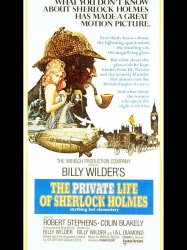 , 2h5
, 2h5Directed by Billy Wilder
Origin USA
Genres Thriller, Comedy, Adventure, Historical, Crime, Romance
Themes Films about sexuality, LGBT-related films, Sherlock Holmes films, Political films, Buddy films, LGBT-related films, Films about royalty, LGBT-related film
Actors Robert Stephens, Geneviève Page, Colin Blakely, Christopher Lee, Clive Revill, Irene Handl
Rating69%





The film is divided into two separate, unequal stories. In the shorter of the two, Holmes is approached by a famous Russian ballerina, Madame Petrova (Tamara Toumanova), who proposes that they conceive a child together, one who she hopes will inherit her physique and his intellect. Holmes manages to extricate himself by claiming that Watson is his lover, much to the doctor's embarrassment.

The Fortune Cookie (1966)
, 2h5Directed by Billy Wilder
Origin USA
Genres Comedy, Romance
Themes Politique
Actors Jack Lemmon, Walter Matthau, Cliff Osmond, Lurene Tuttle, Les Tremayne, Harry Holcombe
Rating71%





CBS cameraman Harry Hinkle (Jack Lemmon) gets injured when football player Luther "Boom Boom" Jackson (Ron Rich) runs into him while he is covering a Browns game at Cleveland Stadium. Harry's injuries are minor, but his conniving lawyer brother-in-law William H. "Whiplash Willie" Gingrich (Walter Matthau) convinces him to pretend that his leg and hand have been partially paralyzed. This way, they can receive a huge indemnity from the insurance company. Harry reluctantly goes along with the scheme because he is still in love with his ex-wife, Sandy (Judi West), and it might win her back. The insurance company suspects that the paralysis is a fake one, so a cat-and-mouse game starts between its investigator, Chester Purkey (Cliff Osmond), and the shyster Willie. Boom Boom takes very good care of Harry, who starts having second thoughts as he witnesses guilt taking its toll on Boom Boom. As he also sees that Sandy is back by his side strictly out of greed, Harry decides to reveal the truth, thereby ruining Willie's get-rich plans.
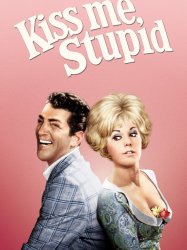
Kiss Me, Stupid (1964)
, 2h6Directed by Billy Wilder
Origin USA
Genres Comedy, Romance
Themes Films about music and musicians, Films about sexuality, Erotic films, Films about prostitution, Films about classical music and musicians, Jazz films, Musical films, Films based on plays, Erotic thriller films
Actors Dean Martin, Kim Novak, Ray Walston, Felicia Farr, Cliff Osmond, Barbara Pepper
Rating69%





While driving his Dual-Ghia from Las Vegas to Los Angeles, lecherous, heavy-drinking pop singer Dino (Dean Martin) is forced to detour through Climax, Nevada. There he meets the amateur songwriting team of Barney Millsap (Cliff Osmond), a gas station attendant, and piano teacher Orville J. Spooner (Ray Walston), a man easily given to jealousy. Hoping to interest Dino in their songs, Barney disables the "Italian" sports car and tells Dino he will need to remain in town until new parts arrive from Milan. (Dual-Ghia was actually an American marque, mating a Dodge frame, drivetrain, and engine with Italian coachwork.

Irma la Douce (1963)
, 2h27Directed by Billy Wilder
Origin USA
Genres Comedy, Romantic comedy, Romance
Themes Films about sexuality, Erotic films, Films about prostitution, Musical films, Films based on plays, Films based on musicals, Erotic thriller films
Actors Jack Lemmon, Shirley MacLaine, Lou Jacobi, Bruce Yarnell, Grace Lee Whitney, Joan Shawlee
Rating73%





Irma la Douce ["Irma the Sweet"] tells the story of Nestor Patou (Jack Lemmon), an honest cop, who after being transferred from the park Bois de Boulogne to a more urban neighborhood in Paris, finds a street full of prostitutes working at the Hotel Casanova and proceeds to raid the place. The police inspector, who is Nestor's superior, and the other policemen, have been aware of the prostitution, but tolerate it in exchange for bribes. The inspector, a client of the prostitutes himself, fires Nestor, who is accidentally framed for bribery.
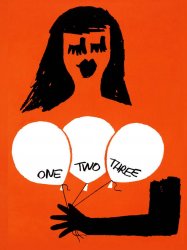
One, Two, Three (1961)
, 1h55Directed by Billy Wilder
Origin USA
Genres Comedy
Themes Political films
Actors Horst Buchholz, Pamela Tiffin, Arlene Francis, James Cagney, Liselotte Pulver, Howard St. John
Rating78%





C.R. "Mac" MacNamara is a high-ranking executive in the Coca-Cola Company, assigned to West Berlin after a business fiasco a few years earlier in the Middle East (about which he is still bitter). While based in Germany for now, Mac is angling to become head of Western European Coca-Cola Operations, based in London. After working on an arrangement to introduce Coke into the Soviet Union, Mac receives a call from his boss, W.P. Hazeltine, in Atlanta. Scarlett Hazeltine, the boss's hot-blooded but slightly dim 17-year-old socialite daughter, is coming to Berlin. Mac is assigned the unenviable task of taking care of this young whirlwind.

The Apartment (1960)
, 2h5Directed by Billy Wilder
Origin USA
Genres Drama, Comedy, Comedy-drama, Romantic comedy, Romance
Themes Films about sexuality, Films about the labor movement, Musical films
Actors Jack Lemmon, Shirley MacLaine, Fred MacMurray, Ray Walston, David Lewis, Jack Kruschen
Rating82%





Calvin Clifford (C. C.) "Bud" Baxter (Jack Lemmon) is a lonely office drudge at a national insurance corporation in a high-rise building in New York City. In order to climb the corporate ladder, Bud allows four company managers, who reinforce their position over him by regularly calling him "Buddy Boy", to take turns borrowing his Upper West Side apartment for their various extramarital liaisons, which are so noisy that his neighbors assume that he is bringing home different women every night.
 Connection
Connection
